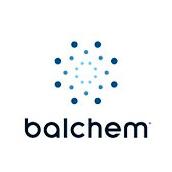No GMO from feed found in meat, milk or eggs: EU agency
Published: August 8, 2007
Source : Reuters
In February, the European Commission received a petition from international environment group Greenpeace and signed by one million EU citizens demanding special labels for dairy and other products where the animals had eaten GMO feed.
The Commission, the EU's executive arm, then asked the European Food Safety Authority (EFSA) for its views on the potential for transgenes or their products to be incorporated into animal tissues on food products such as eggs and milk.
"To date, a large number of experimental studies with livestock have shown that recombinant DNA fragments or proteins derived from GM plants have not been detected in tissues, fluids or edible products of farm animals like broilers, cattle, pigs or quails," EFSA said in a report analyzing 19 separate studies.
The European Union has thresholds for how much GMO material may be present in foods and animal feed before being labeled as biotech. But those rules, which came into force in 2004, do not apply to meat and dairy products coming from a GMO-fed animal.
For green groups, opposed to biotechnology and which have long complained about the issue, this exemption is a glaring hole in the EU's labyrinthine laws on GMO foods.
But for the biotech and animal feed industry it would be unthinkable and unacceptable to change the status quo since they insist their products are no different from conventional foods and therefore pose no health risk.
The bulk of EU feed imports, mainly soybeans and maize, comes from countries like the United States where GMO crops are common through the crop supply chain. Around 90 percent of the EU's imports of GMO grain and oilseeds are used as animal feed.
EU feed manufacturers say the constant need to import high-protein feed materials makes it impossible to supply non-GMO feed on a large scale.
Source
ReutersRelated topics:
Recommend
Comment
Share

Would you like to discuss another topic? Create a new post to engage with experts in the community.




.jpg&w=3840&q=75)